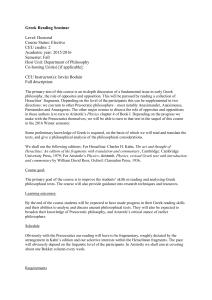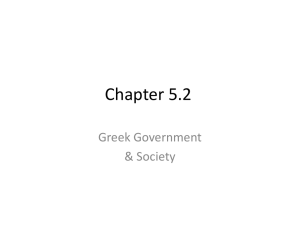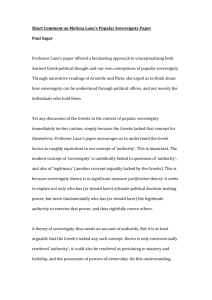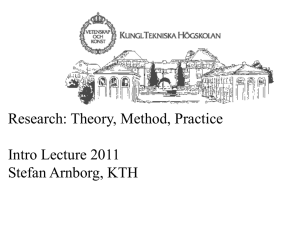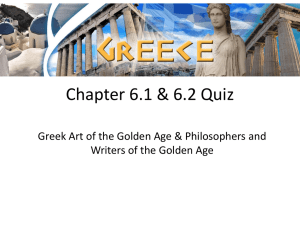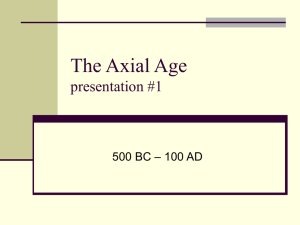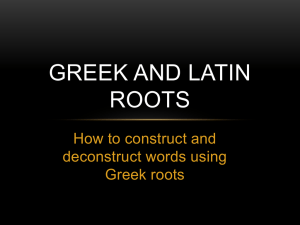Popular Sovereignty as Control of Officeholders: Aristotle on Greek
advertisement
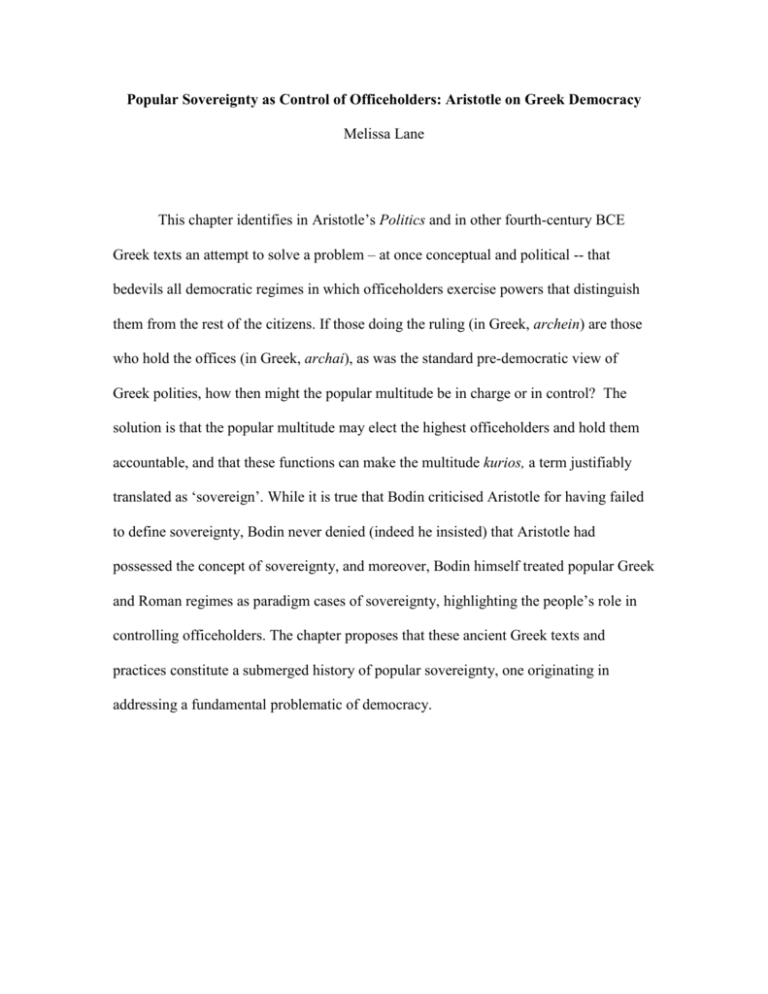
Popular Sovereignty as Control of Officeholders: Aristotle on Greek Democracy Melissa Lane This chapter identifies in Aristotle’s Politics and in other fourth-century BCE Greek texts an attempt to solve a problem – at once conceptual and political -- that bedevils all democratic regimes in which officeholders exercise powers that distinguish them from the rest of the citizens. If those doing the ruling (in Greek, archein) are those who hold the offices (in Greek, archai), as was the standard pre-democratic view of Greek polities, how then might the popular multitude be in charge or in control? The solution is that the popular multitude may elect the highest officeholders and hold them accountable, and that these functions can make the multitude kurios, a term justifiably translated as ‘sovereign’. While it is true that Bodin criticised Aristotle for having failed to define sovereignty, Bodin never denied (indeed he insisted) that Aristotle had possessed the concept of sovereignty, and moreover, Bodin himself treated popular Greek and Roman regimes as paradigm cases of sovereignty, highlighting the people’s role in controlling officeholders. The chapter proposes that these ancient Greek texts and practices constitute a submerged history of popular sovereignty, one originating in addressing a fundamental problematic of democracy.
